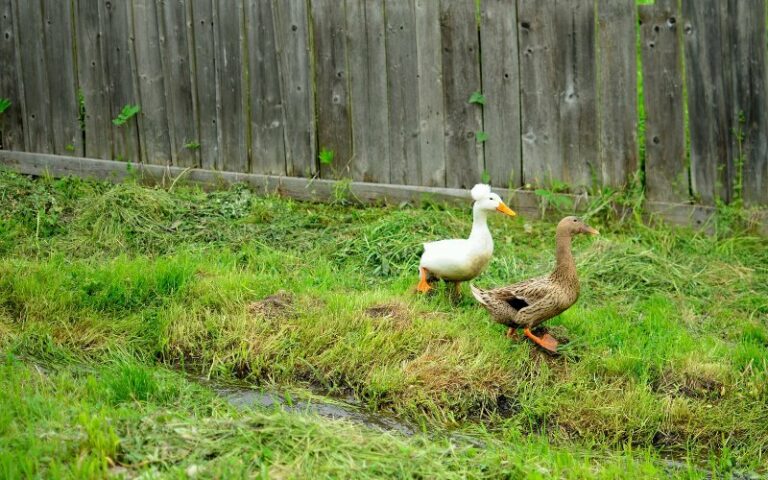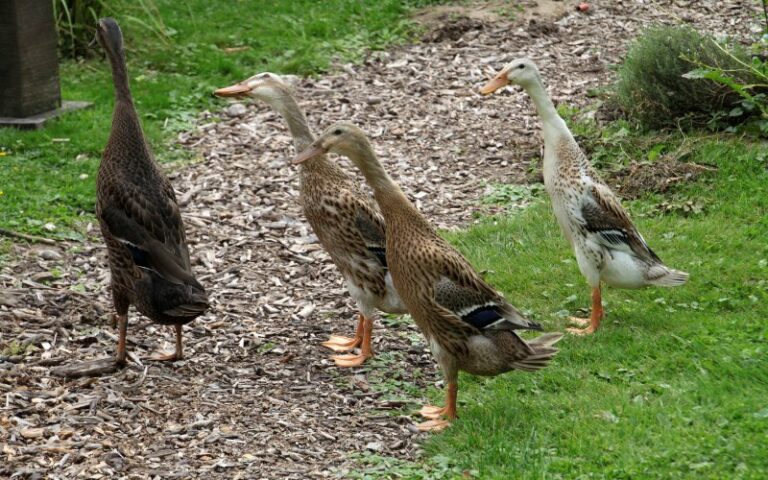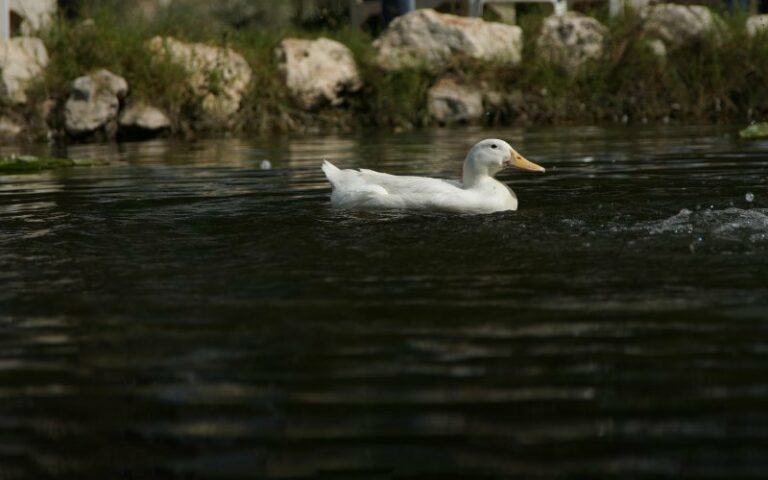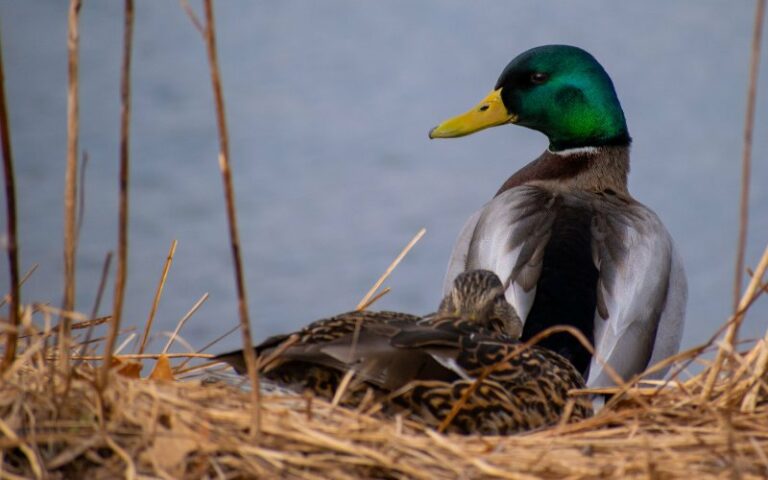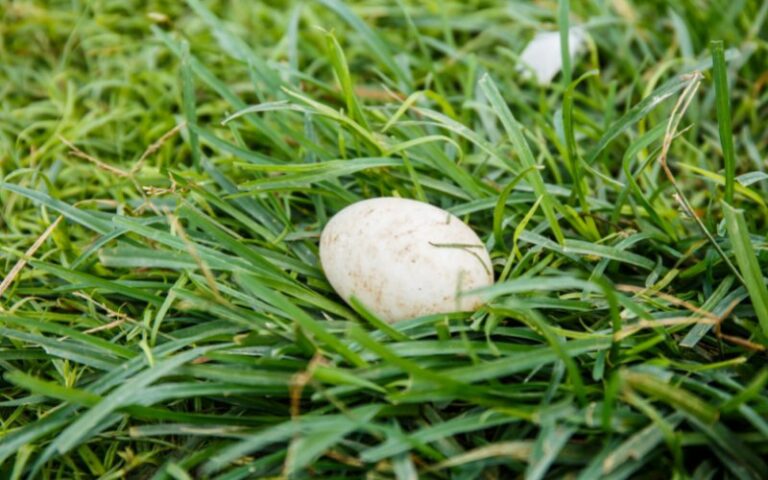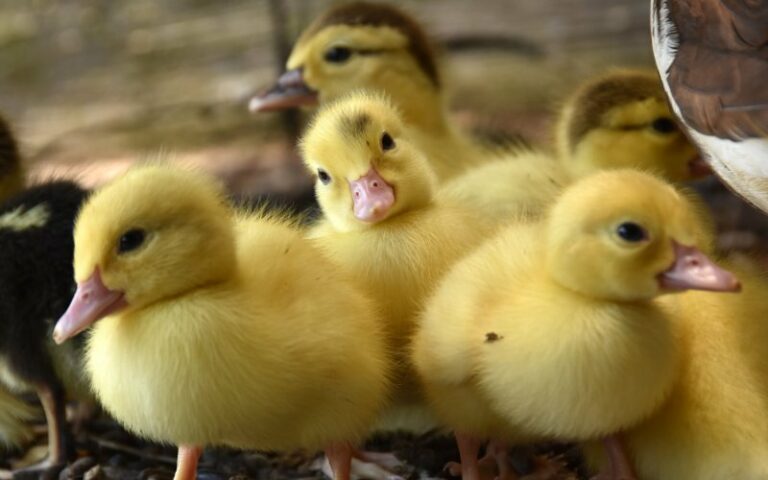Can Ducks Eat Walnuts? (+ Should They)
Walnuts are a readily available snack food and as ducks and other birds are known to eat some nuts and seeds in the wild, it may make sense to assume that walnuts should be a safe treat for them. However, not all types and forms of walnuts should be fed to ducks and there are a few helpful guidelines to keep in mind if you plan to feed walnuts of any type or form to a pet duck or any ducks that get on the farm.

Can Ducks Eat Walnuts? (The Short Answer)
Can ducks eat walnuts? Yes, ducks can eat walnuts. However, ducks tend to choke on things that aren’t in small pieces. Feeding whole walnuts is discouraged and walnut paste or crumbles should be fed instead. The shells should also be removed from the walnuts. Small pieces of shell or shell powder should not be dangerous if consumed in small quantities.
The Nutritional Value of Walnuts for Ducks
Walnuts provide a good number of beneficial nutrients for all types of ducks in many types of common situations. Walnuts do not need to be cooked before being fed to ducks and doing so may reduce their overall nutrient profile.
Macronutrients (Protein, Carbs, and Fat)
Walnuts are high in fat and have a good ratio of protein to carbs overall. A quarter cup of black walnuts, for example, has 18 grams of fat, 8 grams of protein, and 4 grams of carbohydrates per serving. Depending on the size of the duck, the season, and what type of duck they are (pet, show duck, laying duck, meat duck, etc), this is a good concentration of nutrients for something fed as a somewhat regular supplement. This means that you could feed black walnuts up to twice a week at a rate of about 20 grams of walnuts per duck and see good results.
Vitamins and Minerals (Micronutrients)
Beyond the big stuff, aka “macronutrients”, walnuts also provide a significant amount of folic acid, manganese, phosphorus, vitamin B6, vitamin E, vitamin B7, potassium, copper, and magnesium. Of these, the b vitamins and folic acid are incredibly important for all ducks but particularly for laying ducks.
Adding a supplement, such as walnut crumbles or walnut paste, that includes folic acid should result in a notable improvement in the thickness and texture of the shells on any eggs produced. This combined with the copper can significantly reduce the percentage of abnormal eggs produced and supports healthy energy levels overall.
Similarly, Biotin (B7) and manganese are important for any ducks that are being used to produce eggs that will hatch into ducklings. These nutrients can help promote overall fertility and improve the viability of the embryos. All of the nutrients in walnuts also promote healthy growth, when used as a supplement. Walnuts alone should never be fed exclusively.
Are Walnuts Good for a Duck’s Health?
Are walnuts good for ducks? Yes, if fed in moderation and if care is taken in preparing them, can be good for a duck’s health. Ensure all walnuts are ground and only fed occasionally, as a treat. Black walnuts also have a better nutritional profile than English walnuts, as black walnuts are higher in protein and lower in carbohydrates. Below are some key nutrients that walnuts can provide to your duck and how they help keep your duck healthy.
- Protein – Walnuts provide a good amount of protein compared to the number of carbs they contain. This can help support healthy weight management and increase recovery rates in times of stress or a molt.
- Fat – Fat consumption does need to be carefully monitored, but if you have active ducks that are encouraged to forage, walnuts can help keep their overall energy up and support egg-laying in the colder months.
- Copper – Copper is a necessary nutrient for ducks and one that is often found in duck eggs. Laying ducks in particular may need more of this nutrient. Further, sufficient copper in the diet of ducks has been linked to healthier gut bacteria and fewer harmful intestinal infections.
- Biotin (B7) and Manganese – Both of these nutrients lead to the formation of more robust eggs with better shells that can be handled more without harm coming to the internal structure of the egg. This can also improve the fertility and viability of eggs meant to be hatched.
- B6 – Walnuts contain a significant amount of vitamin B6. B6 supports blood flow and healthy combs, webs, wattles, and other membranes. Insufficient B6 can lead to the appearance of open sores and cuts that won’t heal.
Can Walnuts Potentially Harm Your Ducks?
Walnuts can harm ducks in two ways. First, they can be a choking hazard. Throwing whole walnuts, with or without shells, into your duck pen and allowing the ducks to gobble them up could result in choking or an impacted crop. This risk can be mitigated by removing the shells from the walnuts and grinding them down into a powder or walnut paste.
The second risk results from how high in fat walnuts are. Ducks do need some fat and can handle much more than chickens but if they are not also active or if they are fed any other high-fat foods, the risk is that the ducks will become overweight. Being overweight is very risky for ducks as their organs and other bodily systems can be easily overwhelmed by the additional burden. This can result in difficulty standing, breathing, or may greatly increase the risk of becoming egg-bound in laying ducks.
A third potential risk does not stem from the walnuts themselves but rather from how they had been prepared. Salted or candied walnuts or salted and candied nuts of any kind should never be fed to ducks as this can cause dehydration or a dangerous impaction of the crop.

